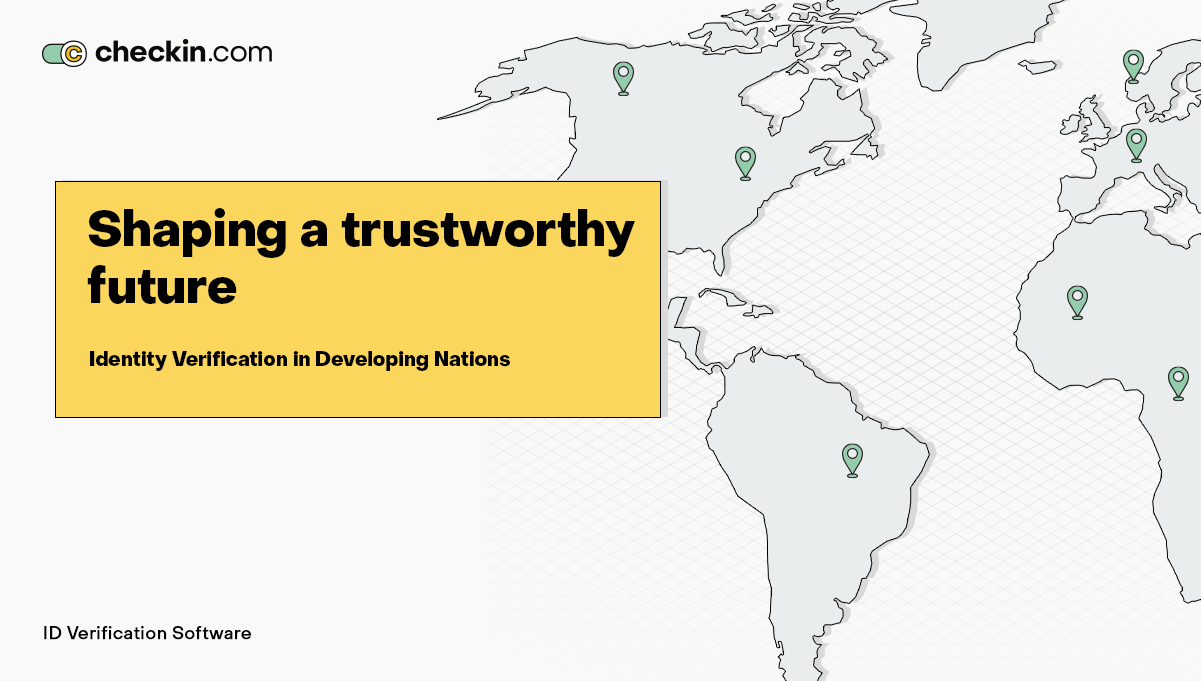
Championing Identity Verification in Developing Nations
10 Dec 2022
In our modern world, having a verifiable identity is crucial. It opens doors to essential aspects of daily life — from banking and healthcare to education and exercising civil rights.
But what happens when you live in a developing country where standard identification documents are less common or even nonexistent? Service providers are rising to the challenge, leveraging innovation to bring identity verification to those who need it most.
Decoding the Identification Gap in Developing Countries
Navigating life without any form of identification is a harsh reality for many in developing nations. Prohibitive distance to registration facilities, lack of information, and bureaucratic hurdles often deny individuals their basic right to identification.
The absence of a verifiable ID can disconnect them from essential services and opportunities, hindering personal growth and national development.
The Power of Innovative Identity Verification Solutions
To combat these challenges, innovative service providers are introducing novel identity verification solutions. Here are some that are changing the game:
- Biometrics: By capitalizing on unique identifiers such as fingerprints, facial features, or voice patterns, biometric technology offers a reliable solution for identity verification sans physical IDs.
- Mobile Technology: Considering the wide use of mobile phones, even in remote corners, mobile identity verification is a practical approach. Using SIM registration data, service providers can create and validate identities, opening doors to various services.
- Blockchain-Based Identities: Decentralized and tamper-proof, blockchain technology can create digital identities, offering a reliable mode of verification even without physical IDs.
How Identity Verification is Empowering Developing Nations
Adopting efficient id verification service in developing nations can bring about transformative changes:
- Enabling Financial Inclusion: Verified identities can help people open bank accounts, apply for loans, and utilize other financial services, driving economic growth and poverty reduction.
- Improving Access to Vital Services: With verified identities, individuals can enjoy better access to healthcare and education, thereby elevating their living conditions.
- Enhancing Social Welfare Programs: Reliable identity verification can help governments distribute welfare benefits more effectively and fairly.
- Boosting Transparency: Identity verification can curb fraud and corruption, thereby promoting transparency and accountability in various sectors.
The Future of Identity Verification in Developing Nations
As we tread towards the future, identity verification emerges as a key catalyst for progress in developing countries. By equipping people with a verifiable identity, we can ensure that the digital revolution doesn’t leave anyone behind.
The advent of creative identity verification solutions sets the stage for a hopeful future.
The Role of Technology in Pioneering Identity Verification
One can’t talk about identity verification without acknowledging the crucial role of technology. It’s the driving force behind the innovative solutions currently being used to establish identities in developing countries. As the world rapidly becomes more digital, technology continues to provide more sophisticated and accessible means of identity verification.
For example, biometric technology has advanced significantly over the years. From basic fingerprint recognition, we’ve now ventured into more complex forms of biometrics such as iris recognition and voice biometrics. These forms of identification can be incredibly hard to forge, providing a secure and reliable method of identity verification.
Similarly, mobile technology has grown leaps and bounds. With smartphones becoming ubiquitous, even in remote areas of developing countries, mobile identity verification has emerged as a practical solution. SIM registration data can help in creating and verifying identities, connecting individuals to essential services.
Blockchain technology, too, has shown immense potential in this area. The decentralized nature of blockchain provides an immutable and tamper-proof platform for creating digital identities. This can be particularly useful in areas where physical IDs are hard to come by.
Anticipating Challenges and Opportunities
As promising as these innovations are, it’s crucial to anticipate potential challenges that may arise. Ensuring that these verification solutions reach those who need them most is vital.
Furthermore, while solutions like biometrics and blockchain offer robust security, they also raise questions about data privacy and protection. Navigating this delicate balance will be a critical challenge to address as we advance.
Despite these challenges, the potential benefits of effective identity verification are immense. They open a world of possibilities for developing nations, from improved public services to more transparent governance.
Conclusion
In the grand scheme of global development, identity verification is an unsung hero. For developing nations, it’s a game-changer, enabling access to crucial services, fostering national development, and ensuring that every individual can confidently assert – I am known, and I belong.
FAQ
Why is identity verification crucial in developing countries?
Identity verification is key for individuals in developing countries to access essential services like finance, healthcare, and education. It also supports national development efforts and fosters transparency.
What are some innovative identity verification solutions being used in developing nations?
Solutions include biometric verification, mobile identity verification using SIM registration data, and blockchain-based digital identities.
How does identity verification empower developing nations?
It enables financial inclusion, better access to vital services, enhances social welfare programs, and boosts transparency in various sectors.